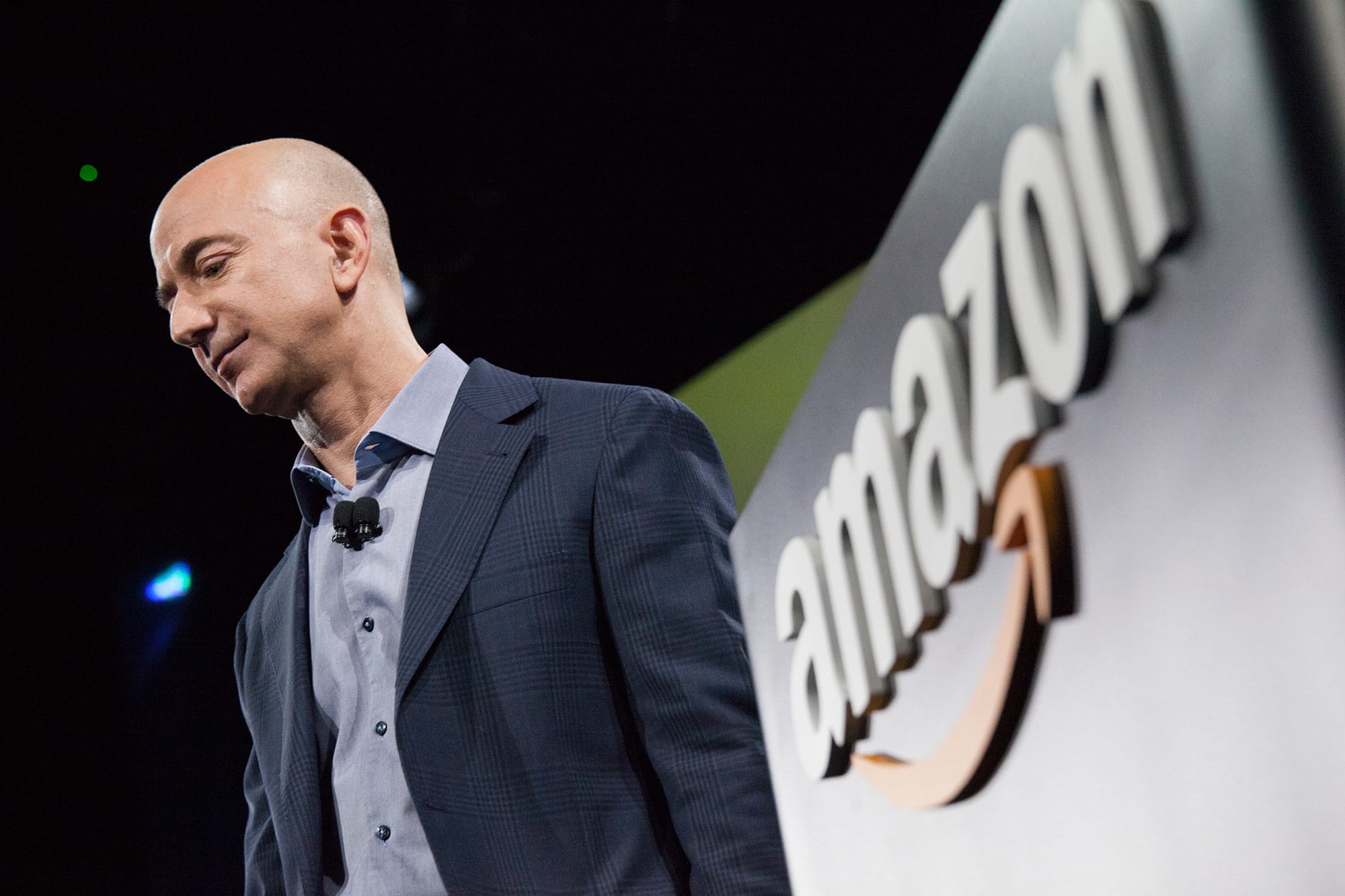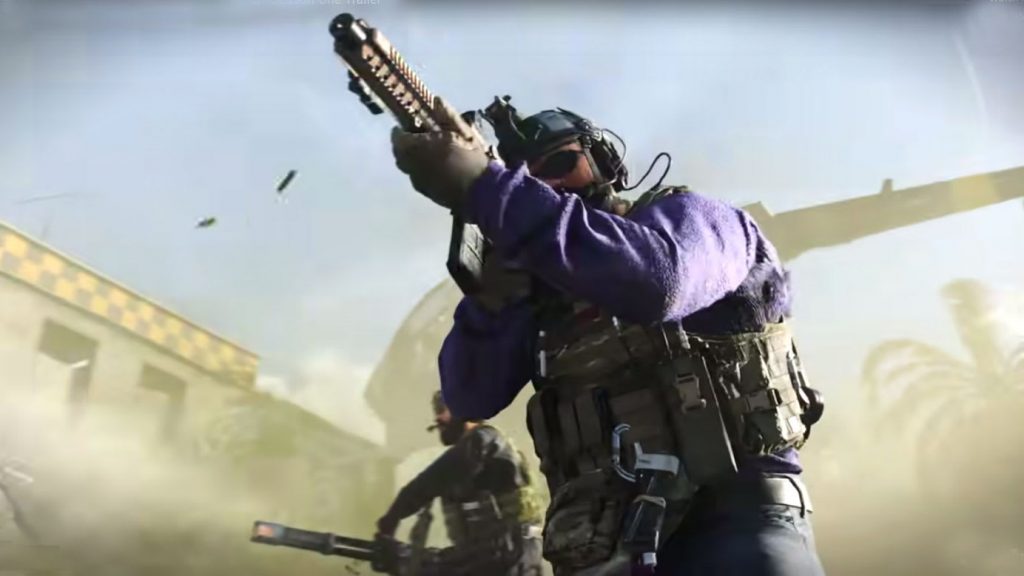
Amazon.com founder and CEO Jeff Bezos.
Getty Images
The Trump administration is cracking down on the sale of counterfeits online from platforms like Amazon, according to a new report released Friday by the Department of Homeland Security.
Law enforcement officials will immediately start to identify cases where counterfeit goods are being sold online, according to the report, and will “pursue civil fines and other penalties against these entities.” The report calls for new legislation to allow “the government to seek injunctive relief against third-party marketplaces and other intermediaries dealing in counterfeit merchandise.”
The report also gives officials greater power to examine shipments in U.S. warehouses and fulfillment centers, including Amazon’s sprawling network of warehouses across the country. Officials will notify the facilities of counterfeit goods and urge them to destroy or abandon any “identical offending goods in their possession,” according to the report.
The initiative comes after President Donald Trump signed a “phase one” trade deal with China that requires both countries to “combat the prevalence of counterfeit or pirated goods” by taking “effective action” when platforms fail to prevent intellectual property infringement.
The report says U.S. Customs and Border Protection, which introduced the initiative with DHS and Immigration and Customs Enforcement, already has authority “to require formal entry (and the complete data set for any shipment) for any merchandise, if deemed necessary for import admissibility enforcement purposes; revenue protection; or the efficient conduct of customs business.” According to DHS data, the U.S. government seized 33,810 infringing goods at the border in 2018, up from 3,244 in 2000.
The agencies laid out 10 “immediate actions” for the government to take on online counterfeits as well as 10 best practices for e-commerce platforms and third-party marketplaces. The government said it intends to collect more data about domestic warehouses and fulfillment centers in certain transactions with third-party sellers, seek financial penalties on third-parties that assist in importing counterfeit goods and create a new consortium of various stakeholders to share information about the trafficking of counterfeit goods.
The agencies recommend that e-commerce platforms make their terms of service very clear about prohibiting the sale of counterfeit goods, enhance third-party vetting processes by requiring various forms of identification, simplify the process for rights holders, such as brands, to submit complaints of counterfeits and having an efficient process to take down a listing that is found to be counterfeit. The report also urges e-commerce platforms to put in place stronger policies to protect consumers from counterfeits sold by foreign sellers, such as requiring them to provide proof of insurance in case of any damages incurred.
Not just about Amazon
White House trade advisor Peter Navarro told The Wall Street Journal that the initiative “is not about any one e-commerce platform —this is about e-commerce playing by a different set of rules that simultaneously hammer brick-and-mortar retailers, defraud consumers, punish workers and rip off intellectual-property rights holders.”
But Trump has been notoriously critical of Amazon and its founder Jeff Bezos, who also owns The Washington Post. Amazon blamed Trump’s “behind-the-scenes attacks” for losing out on a $10 billion Pentagon cloud contract to Microsoft.
Amazon continues to face criticism for failing to prevent the spread of counterfeit goods on its platform. While the company says it has a “zero tolerance” policy for copycat products and has developed tools to help manage the problem, its marketplace of third-party sellers continues to be plagued by pirated goods. The problem has grown so severe that advocacy groups have called for some Amazon sites to be added to the U.S. government’s annual “Notorious Markets” list, which names sites and companies that facilitate the sale of counterfeit goods.
The company has taken notice of the problem. Last February, Amazon began warning investors in its annual report that it may never be able to prevent third-party merchants from selling “counterfeit, pirated or stolen goods” on the platform. Earlier this month, Amazon said it would ramp up counterfeit reporting to law enforcement, with the hope that it will help officials catch more criminals.
At a news conference introducing the report, Navarro said the plan is meant to “shift the burden” of counterfeit goods e-commerce platforms from the government itself, similar to how brick and mortar stores can be held liable for selling mislabeled or defective goods. Navarro added that while e-commerce companies have developed more tools to tackle counterfeits, the “the problem keeps getting worse.”
“There is nobody in America who can be against this,” Navarro said, “except maybe some of the e-commerce platforms who are making too much money off this problem.”
Amazon isn’t the only e-commerce company that has faced scrutiny over counterfeit goods. Alibaba, Walmart and eBay all operate online marketplaces that feature third-party sellers, many of which sell products, new and used, from all over the world that they purchase from official distributors, flea markets and clearance aisles.
Amazon told CNBC in a statement that it’s invested heavily to prevent the sale of counterfeits and unsafe products and that it works with brands and law enforcement to go after bad actors, including through civil and criminal lawsuits.
“Amazon’s anti-counterfeiting efforts are best in class but we recognize they are not perfect and will continue to innovate and work with policymakers and law enforcement to protect brands and customers,” the company added.
An Alibaba spokesperson declined to comment. Representatives from eBay and Walmart didn’t immediately respond to requests for comment.
A 2018 report by the Government Accountability Office, Congress’ nonpartisan investigative division, discovered a prevalence of fake goods entering the country. The investigators purchased 47 consumer products from third-party sellers across Amazon, Walmart, eBay, Sears Marketplace and Newegg. Of those, 20 items were found to be counterfeits, including Urban Decay cosmetics, Yeti travel mugs and phone chargers.
Alibaba has taken steps to curb the sale of counterfeit goods, including establishing an anti-counterfeit alliance and deploying a number of tools to proactively detect and remove counterfeits. eBay also has systems in place that let brands report suspected counterfeits. Walmart also has a “zero tolerance” policy for counterfeit products.
Amazon’s counterfeit problem could also make it vulnerable to antitrust action. The company is already being probed by Federal Trade Commission officials, according to reports from several outlets.
There’s an ongoing discussion within circles of antitrust academics and professionals about whether and how the traditional consumer welfare standard for deciding antitrust cases should be applied to the tech industry. Historically, regulators have often used price as a measurement proxy for this standard, but some argue that’s insufficient to measure harms from tech companies whose services are often discounted or free due to vast data collection or subsidies from other parts of their business.
WATCH: How Amazon and others are trying to stop an epidemic of package theft

